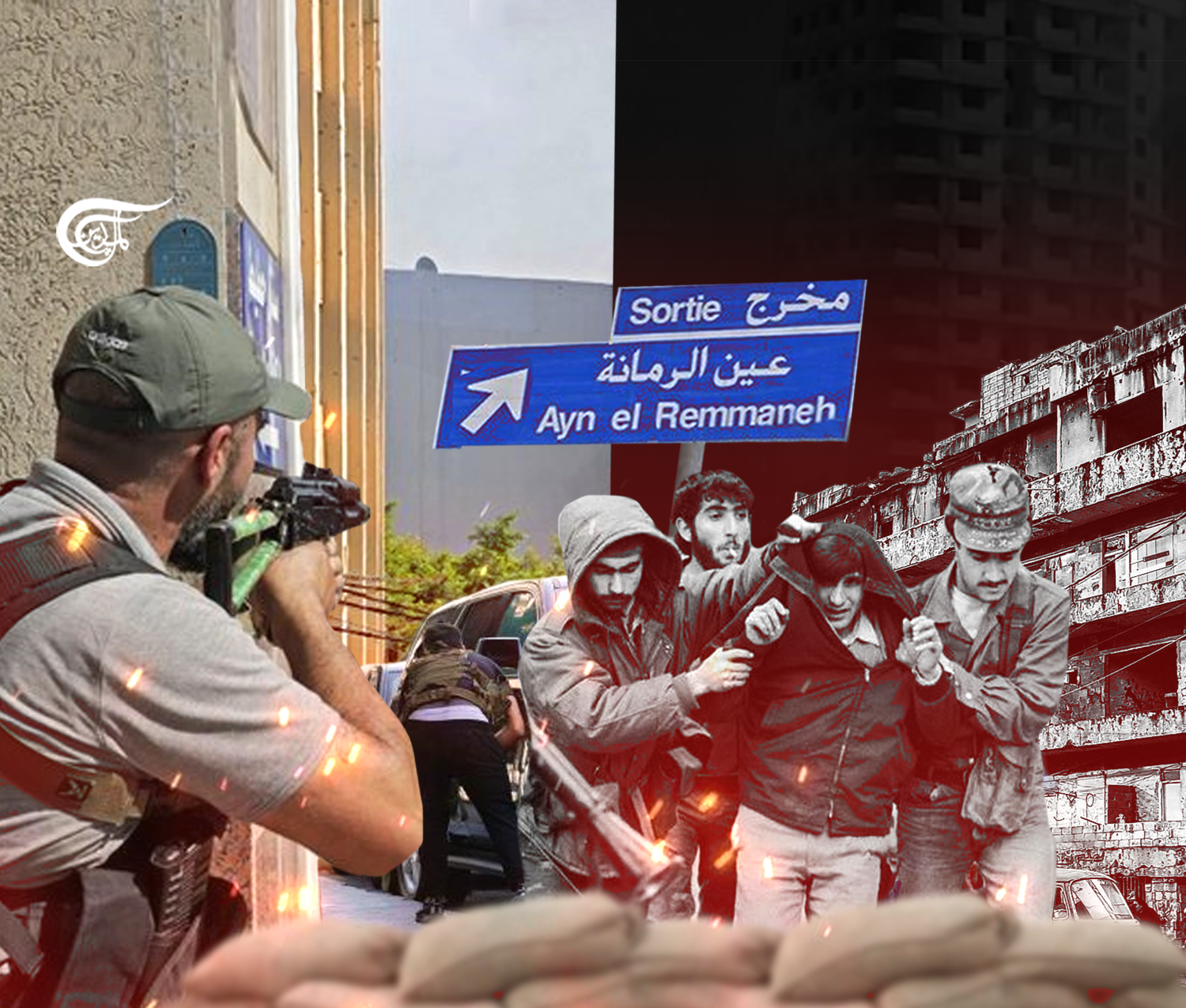Civil War Flashbacks Haunt the Lebanese as Beirut Turns into a Warzone
The Tayouneh scenes reminded the Lebanese of the all too familiar photos from the civil war.
The shocking events that shook the capital Beirut, reminded the Lebanese of the 15-year civil war that only ended in 1990.
On Thursday a group of protesters from the Shiite group Hezbollah and its ally, Amal Movement were attacked by the snipers and gunmen of the Lebanese Forces, on their way to protest against the judge Tarek Bitar who is assigned to investigate last year's port explosion.
The area turned into a war zone as fire was exchanged between the parties.
The protest followed a speech on Monday by Secretary-General of Hezbollah Sayed Hasan Nasrallah who called for an “honest” judge to replace Bitar.
The protesters were calling on for the judge to be removed, accusing Bitar of being politicized.
Seven people were killed, and tens were injured.
Nearby schools were evacuated as panicked parents rushed to pick up their children. Residents of the area living in buildings on higher floors were descending to avoid gunshots as snipers positioned themselves on the rooftops.
Many families were evacuated from buildings in the area by the Lebanese army and the Lebanese Red Cross.
Those scenes reminded the Lebanese of the all too familiar photos from the civil war.
Residents stuck in buildings as escalations rose
Kefaya Ahmad told Al Mayadeen that she watched the events unfold from the rooftop of her building.
Initially, she was watching as protesters gathered, but she did not expect this escalation at first.
When her parents would tell her of the tales of the civil war, of how people were killed according to their sects at checkpoints, she always believed that that was ancient history.
Today, she is not so sure.
“When I had to evacuate my building as the shooting increased and snipers became more violent, I thought I was going to get shot and that I wasn’t ready to die.”
Mother of 3, Dana Kobeissi stated that when she rushed to pick up her children from school, she got a flashback of the days when her parents would rush to pick her and her siblings up “as clashes escalated in the 80s between different sects too.”
Citizens stormed to social media to express their outrage
“Is it possible that we haven’t learned yet?” posted Mirna Reslan on Facebook.
One of the martyrs, Mariam Farhat who was killed when a bullet struck her while she was at home waiting for her young daughter to come home from school.
Activist Hadi Narallah tweeted the following:
She wasn’t even on the streets. She didn’t carry weapons. She was getting ready to pick up her daughter from the kindergarten
— Hadi Nasrallah (@HadiNasrallah) October 14, 2021
Mariam Farhat.
She was shot and killed in her own apartment in Beirut by a US-backed sniper from the Christo-fascist “Lebanese Forces party”. Terrorism pic.twitter.com/yboFtX9f5X
Other users stressed that the events were a mere distraction:
"If you keep them busy with basic needs, they will forget about the freedom they lost".
— Lebanon to the World 🇱🇧 🌎 (@worldoflebanon) October 16, 2021
Wars, political battles, religious brainwashing, etc..
Don't let them win, this is all a distraction from our main battle.#Lebanon #لبنان #انفجار_مرفأ_بيروت #عين_الرمانة
Others solely wanted to focus on the amount of trauma that was caused without pointing fingers.
I'll just leave these everywhere#كمين_الطيونة #الطيونة pic.twitter.com/4h3k1vng7F
— jana (@janabbas_) October 14, 2021
The Lebanese civil war (1975-1990)
The civil war in Lebanon started between the Maronite and Palestinian forces, then Leftist, pan-Arabist and Muslim Lebanese groups formed an alliance with the Palestinians.
During the course of the fighting, alliances shifted rapidly and unpredictably.
The war was characterized by the mass exodus of one million Lebanese, deep sectarian tension, and the killing at checkpoints based on the religion stated on one’s ID.
Today the situation is not very different, 40 years later.
Although there are no accurate numbers, it is estimated that over 300,000 people have left Lebanon since late 2019 after the economic and political situation worsened in the country.
7 people were killed last week because of sectarian tension, the citizens are quarreling with one another, people had to be rushed out of their homes, children had to be evacuated out of their schools.
The civil war ended in 1990 after the Taif agreement was signed, and Lebanese sectarian parties were asked to hand in their weapons to the government.
Rami Haidar, a local store owner in Beirut, noted that he was extremely shocked that citizens of the same country were still willing to shoot at one another after all the country has gone through.
“Residents of Ain El Remmeneh and Chiyah have always lived side by side, done businesses with each other, and befriended one another. It’s disturbing how politics could suddenly make them criminals in the eyes of one another.”

 Ghadir Hamadi
Ghadir Hamadi
 4 Min Read
4 Min Read










